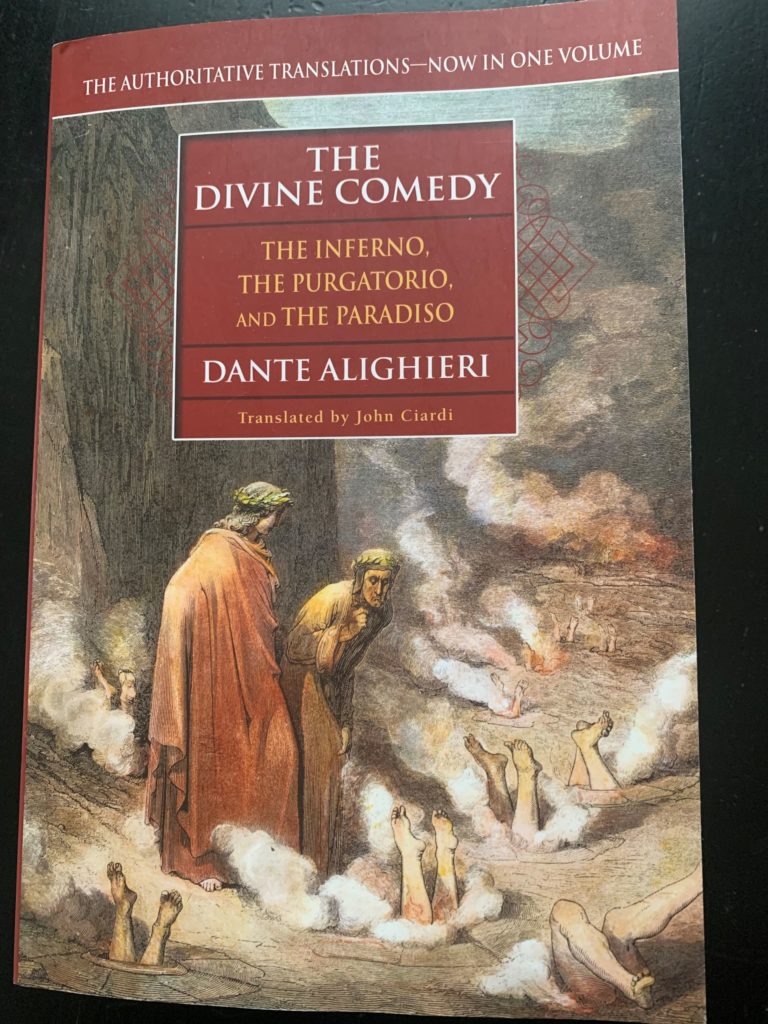In all of my years of reading, I have never seen this word before. The word is avarice. Apparently, it first appeared in Chaucer’s Canterbury Tales. I guess I missed that in high school because I had to look up the definition. According to Webster’s in the intense desire for wealth. If you are not used to reading the word like I am, I will call it greed from this point forward.

Another quasi difference I see with my version of the book is that it calls these levels of Purgatory as Cornices where everywhere else I read them as Terraces. Along with the names and mythology, this book has some of the most challenging vocabulary in any book I have ever read. It is modern English, but it is very highbrow. There are a lot of esoteric words that I have to look up if it is not noted in the footnotes. I don’t know if that is because this is a poem and the word is used for meter or not. I don’t recognize it as such, but the formatting is certainly grouped as poetry.
The big todo in these two Cantos is the earthquake that happens in Canto XX. It is not totally clear what the significance really means but it seems like the consensus is more along the lines of a soul leaving purgatory and heading into heaven proper. Another interesting debate in my noted section of the book was that when souls leave this Cornice, they start to gain some freedom.
This freedom means that the purification process is succeeding. Thus, souls are allowed some more self governance when it comes to sentence and repentance in Purgatory suggesting that they can ascend at their own rate. This all goes back to what I was saying about how sin is organized last week. The next three levels (including this one) belong to loving too much.
We cannot get by without discussing the sin and the atonement of greed. On this level, it was jam packed with souls. So much so that there was really no room to maneuver. I am speculating that this represents greed where the only thing left in their heart was the pursuit of wealth. I haven’t really seen it discussed anywhere but that seems intuitive to me.
There is supposedly one significant interaction here to. They meet someone called Statius. Apparently, he will be with Dante and Virgil until Dante moves to Heaven. Statius is a Roman Poet who wrote several classics which makes him a minor celebrity. As the legend goes, Statius is a converted Christian and represents redemption. So now we have Virgil as logic (and free will) Dante as humanity and Statius as redemption.
End Your Programming Routine: We are getting very close to closing out Purgatory. There are two levels left, gluttony and lust. Next week will be covering Cantos XX – XXIV. Just as promised, things have lightened up quite a bit since the beginning. This is good because I don’t want to read and write a downer for a whole year. I think that I am also expanding my vocabulary too.
Recent Comments